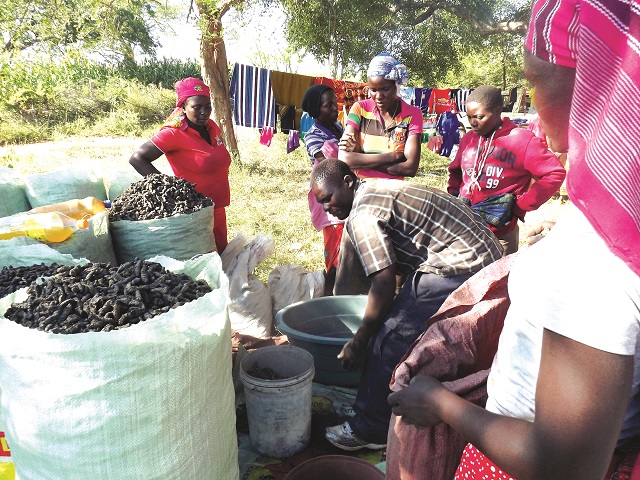Beitbridge, Gwanda commercialise amacimbi harvesting
THE Beitbridge Rural District Council (RDC) has drafted by-laws aimed at regulating commercial harvesting of mopane worms popularly known as amacimbi/madora, which would help generate revenue for the local authority while enhancing environmental conservation.
Traditionally, mopane worms are harvested for subsistence purposes by rural communities but over the past decade, they have increasingly become a commercial commodity.
In a statement, Beitbridge RDC chief executive officer, Mr Peter Moyo, said their council in terms of Section 90 of the Rural District Council Act Chapter 29:13 has resolved to craft the ‘Access and Utilisation of Mopane Worm’ by-laws.
“The main purpose of the by-laws is seeking to promote conservation, sustainable harvesting and utilisation of mopane worms and the by-laws shall apply to the area under the jurisdiction of the Beitbridge Rural District Council,” he said.
Mr Moyo said copies of the proposed by-laws will be open for inspection during office hours (07:00 – 1600hrs) at the Beitbridge Rural District Council offices and the following Sub offices Lutumba, Zezani, Chaswingo and Shashe Sub Office for a period of 30 days from the date of the last publication of this notice in the public media.
For communities in Matabeleland South province, in particular, mopane worms have become a reliable source of livelihood and nutrition.
Mopane worms are processed and sold to local urban markets but the market has also extended to South Africa, Botswana, Democratic Republic of Congo and Europe.
The contribution of mopane worms to people’s livelihoods has become so significant that outbreaks of the worms create seasonal employment for locals.
Some travel from different provinces like Midlands, Masvingo and Manicaland for the harvest of amacimbi.
Meanwhile, the Gwanda Rural District Council (RDC) has also drafted by-laws meant to introduce licences to individuals intending to harvest amacimbi under areas of its jurisdiction as a way of monetising the resource.
Mopane worm traders and harvesters put up tents and shacks in the forest, which become their temporary homes while they are collecting mopane worms.
Money – Image taken from Pixabay
Mopane worms have also become a source of barter trade for these camp occupants where they give out the mopane worms in exchange for clothes and foodstuffs among other things.
It is estimated that in a good season, over 500 tons of mopane worms are collected throughout the province with an estimated value of up to US$1 000 000.-ebusinessweekly











